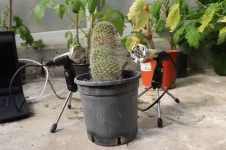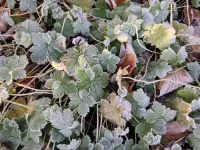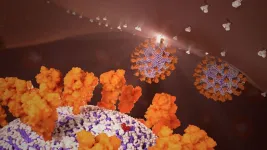(Press-News.org) Increasing the proportion of non-alcoholic drinks on sale in online supermarkets could reduce the amount of alcohol people purchase, suggests a study published today led by researchers at the University of Cambridge.
The team used a simulated supermarket that presented shoppers with varying proportions of alcoholic and non-alcoholic drinks and asked them to select drinks to purchase for their next online shop. They found that shoppers who were exposed to more non-alcoholic drinks selected and purchased fewer units of alcohol. The findings are published in PLOS Medicine.
Excessive alcohol consumption is a major risk factor for a number of diseases, including cancer, heart disease and stroke. Encouraging people to change their behaviour could therefore have significant health benefits at both an individual and population level.
There is increasing evidence that people can be ‘nudged’ towards reducing their alcohol consumption by making small adjustments to their environment. For example, scientists at Cambridge’s Behaviour and Health Research Unit have previously shown that serving wine in smaller glasses – even while keeping the amount of wine in the glasses the same – led to people consuming less alcohol.
A recent analysis found that reducing the proportion of unhealthy snacks available can reduce how much of these food products people consume, though the evidence included was limited in both quality and quantity. The Cambridge team wanted to see if a similar approach might work to nudge people towards consuming fewer alcoholic drinks.
The researchers recruited 737 adults living in England and Wales, all of whom regularly purchased alcohol online, to take part in the study. Of these, just over 600 completed the study and were included in the final analysis – 60% were female and the average (mean) age was 38.
Participants selected drinks from 64 options in a simulated online supermarket designed to look and function like a real online supermarket. Options included a range of beers, ciders, alcohol-free beer and cider alternatives, and soft drinks.
Participants were randomly assigned to one of three groups, each of which was presented with a different proportion of alcoholic and non-alcoholic drinks. 25% of the drinks seen by Group 1 were non-alcoholic. For Group 2, this increased to 50%, and for Group 3 the proportion of non-alcoholic drinks seen rose to 75%.
Those exposed to the highest proportion of non-alcoholic drinks (Group 3) selected fewer alcohol units, 17.5 units, compared to 29.4 units in those exposed to the lowest proportion of non-alcoholic drinks (Group 1) – equivalent to a reduction of about 41%.
Participants were then asked to actually purchase the same drinks in an online supermarket, Tesco, the largest national supermarket in the UK. Around two-thirds of participants completed this second stage, with 422 participants going on to purchase drinks. The researchers point out that ‘cart abandonment’ – where people do not purchase items they put in their shopping cart – is common in online shopping contexts.
The researchers found that amongst participants exposed to the highest proportion of non-alcoholic drinks, 52% of the drinks purchased were alcoholic, compared to 70% of drinks that were purchased by those exposed to the lowest proportion of non-alcoholic drinks.
Lead author Dr Natasha Clarke said: “We created our simulated supermarket to be as close as possible to an actual online supermarket and found that increasing the proportion of non-alcoholic drinks that shoppers were exposed to made a meaningful difference to their alcohol selection. Though we’d need to confirm these findings using only a real online supermarket, they are very promising.”
While the current market for alcohol-free beer, wine and spirits represents only a small share of the global alcohol industry, it is rapidly growing. For example, low and no-alcohol beer currently accounts for 3% of the total beer market, but this is forecast to increase by nearly 13% per year over the next 3 years and is the fastest growing drinks segment in the UK.
Senior author Dr Gareth Hollands said: “Supermarkets typically stock a wider range of alcoholic drinks than non-alcoholic alternatives aimed at adults, but this is slowly changing. Our results suggest that if non-alcoholic options were to become the majority instead, we might expect to see substantial reductions in alcohol purchasing.”
Importantly, the overall number of drinks that participants selected and purchased remained similar between groups, suggesting that effects were a result of shifting people’s choices. This implies overall drink sales and potentially revenues may be relatively unchanged, dependent on the pricing of non-alcoholic drinks.
Professor Dame Theresa Marteau, Director of the Behaviour and Health Research Unit, said: “We all know that drinking too much alcohol is bad for us, but we’re often unaware of how much we are influenced by the environment around us. Making changes to this environment – from exposing people to a greater proportion of healthier options through to changing the sizes of the utensils we eat and drink from – can help us cut down on potentially unhealthy habits. Even relatively small changes can make a difference both to individuals and at a population level.”
Although some of the non-alcoholic drink options in the current study contained no sugar and were generally lower in calories than the alcoholic options – an average of 64 calories per non-alcoholic drink versus 233 calories per alcoholic drink – many soft drinks and alcohol-free alternatives still contain large amounts of sugar and calories. The researchers argue that, given the health risks associated with sugary drink consumption, continued regulation and policies to reduce sugar content and consumption from both alcoholic and non-alcoholic drinks is needed to mitigate these risks.
The research was funded by Wellcome and carried out at the Behaviour and Health Research Unit, University of Cambridge. Dr Clarke is now a Lecturer in Psychology at Bath Spa University. Dr Hollands is a Principal Research Fellow at UCL.
Reference
Clarke, N et al. Impact on alcohol selection and online purchasing of changing the proportion of available non-alcoholic versus alcoholic drinks: A randomised controlled trial. PLOS Med; 30 Mar 2023; DOI: 10.1371/journal.pmed.1004193
END
Increasing availability of non-alcoholic drinks may reduce amount of alcohol purchased online
2023-03-30
ELSE PRESS RELEASES FROM THIS DATE:
The untold history of the horse in the American Plains, a new future for the world
2023-03-30
“Horses have been part of us since long before other cultures came to our lands, and we are a part of them,” states Chief Joe American Horse, a leader of the Oglala Lakota Oyate, traditional knowledge keeper, and co-author of the study. In 2018, at the instruction of her elder knowledge keepers and traditional leaders, Dr. Yvette Running Horse Collin contacted Prof Ludovic Orlando, French National Centre for Scientific Research (CNRS) scientist. She had completed her PhD, which focused on deconstructing the history of horses in the Americas. Up until that point, the field had been dominated by western academics, and Indigenous voices had been largely dismissed. She sought ...
T cells in human blood secrete a substance that affects blood pressure and inflammation
2023-03-30
Acetylcholine regulates blood flow, but the source of blood acetylcholine has been unclear. Now, researchers at Karolinska Institutet have discovered that certain T cells in human blood can produce acetylcholine, which may help regulate blood pressure and inflammation. The study, which is published in PNAS, also demonstrates a possible association between these immune cells in seriously ill patients and the risk of death.
Blood flow regulation by acetylcholine is long established and highlighted by the 1998 Nobel Prize in Physiology or Medicine. Yet the sources of acetylcholine ...
Interviews with icons yield lessons on productivity in ‘Wisdom Years’
2023-03-30
The Wonder Years can be great, sure: first loves, long summers, panoramic dreams exclusive to those with a lifetime of runway. The Working Years, too: established identity, new family and old friends, freedom to pursue personal goals and professional satisfaction.
The University of Nebraska–Lincoln’s Ken Kiewra just doesn’t want you to forget about the Wisdom Years. They got the name from famed psychologist Erik Erikson, who roughly defined them as starting at age 65, often considered a mile-marker of retirement in the United States. But whereas Erikson saw the Wisdom Years as ...
Conversion to Open Access using equitable new model sees upsurge in usage of expert scientific knowledge
2023-03-30
(San Mateo, CA, USA, March 30, 2023) — Leading nonprofit science publisher Annual Reviews has successfully converted the first fifteen journal volumes of the year to open access (OA) resulting in substantial increases in downloads of articles in the first month.
Through the innovative OA model called Subscribe to Open (S2O), developed by Annual Reviews, existing institutional customers continue to subscribe to the journals. With sufficient support, every new volume is immediately converted to OA under a Creative Commons license and is available for everyone to read and re-use. In addition, all articles from the previous nine volumes are also ...
Global breakthrough: Plants emit sounds!
2023-03-30
The sounds emitted by plants are ultrasonic, beyond the hearing range of the human ear.
Plant sounds are informative: mostly emitted when the plant is under stress, they contain information about its condition.
The researchers mainly recorded tomato and tobacco plants; wheat, corn, cactus, and henbit were also recorded.
The researchers: "Apparently, an idyllic field of flowers can be a rather noisy place. It's just that we can't hear the sounds!"
Global breakthrough: for the first time in the world, researchers at Tel Aviv University recorded and analyzed sounds ...
ATS publishes official statement on race, ethnicity and pulmonary function test interpretation
2023-03-30
March 30, 2023 – The American Thoracic Society has issued an official statement for clinicians that explains why race and ethnicity should no longer be considered factors in interpreting the results of spirometry, the most commonly used type of pulmonary function test (PFT). The statement was endorsed by the European Respiratory Society. The full statement is available online in the American Journal of Respiratory and Critical Care Medicine.
Spirometry is a breathing test that measures how much air is going into an individual’s lungs, and how rapidly air is inhaled and exhaled. ...
Researchers reveal real-time glimpse into growth habits of nanoparticles
2023-03-30
CHAMPAIGN, Ill. — For the first time, researchers have observed the process of nanoparticles self-assembling and crystalizing into solid materials. In new videos produced by the team, particles can be seen raining down, tumbling along stairsteps and sliding around before finally snapping into place to form a crystal’s signature stacked layers.
Led by Qian Chen at the University of Illinois Urbana-Champaign and Erik Lutijen at Northwestern University, the study used liquid-phase transmission electron microscopy and computational modeling to gain an unprecedented view of the self-assembly ...
How plants cope with the cold light of day - and why it matters for future crops
2023-03-30
On bright chilly mornings you can either snuggle down under the duvet or leap up and seize the day.
However, for photosynthesising plants, this kind of dawn spells danger, so they have evolved their own way of making cold mornings tolerable.
Research led by the John Innes Centre has discovered a cold “coping” mechanism that is under the control of the plant biological clock and could offer solutions to breeding more resilience into crops less suited to cold climates.
“We’ve identified a new process that helps plants ...
WPI-led team uncovers new details of SARS-COV-2 structure
2023-03-30
Worcester, Mass. – March 30, 2023 – A new study led by Worcester Polytechnic Institute (WPI) brings into sharper focus the structural details of the COVID-19 virus, revealing an elliptical shape that “breathes,” or changes shape, as it moves in the body. The discovery, which could lead to new antiviral therapies for the disease and quicker development of vaccines, is featured in the April edition of the peer-reviewed Cell Press structural biology journal Structure.
“This is critical knowledge we need to fight future pandemics,” said Dmitry Korkin, Harold L. Jurist ’61 and Heather E. Jurist Dean’s ...
University Hospitals research published in New England Journal of Medicine shows minimally invasive procedure saves most patients with severe vascular disease from amputation
2023-03-30
CLEVELAND – A study published in the March 30 issue of the New England Journal of Medicine has shown that there may finally be an alternative to amputation for patients suffering from chronic limb-threatening ischemia (CLTI), the most severe form of peripheral artery disease. This study, co-led by University Hospitals (UH) Harrington Heart & Vascular Institute, could lead to the first FDA approval of a therapy giving thousands of patients hope for an alternative to limb loss.
THERAPY SAVES MOST PATIENTS FROM AMPUTATION
The PROMISE II U.S. pivotal clinical trial found that minimally ...






